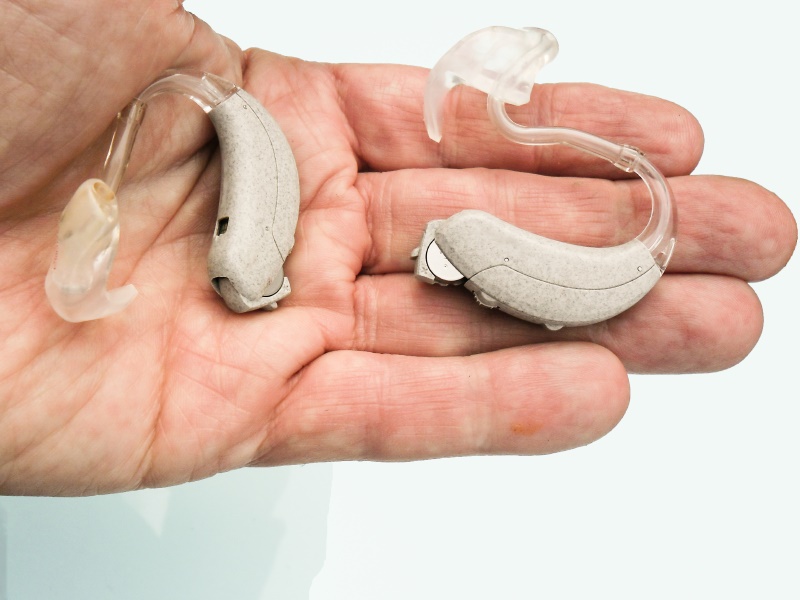
To keep your hearing aids functioning correctly for years to come, you need to learn proper care and maintenance. And although it may seem like an additional burden, with the right approach your hearing aid care will become easy and automatic.
The trick is building effective habits.
If you assimilate your hearing aid care into your everyday and nightly routines, after a while it won’t feel like any extra work at all.
The following are a few tips for the day-to-day care of your hearing aids (which your hearing professional will also go over with you):
Clean your hearing aids daily – Attempt to incorporate your hearing aid cleansing into your nightly routine, so it will become as automatic as brushing your teeth. Daily cleaning is important because daily hearing aid cleaning can thwart the accumulation of earwax, dirt, and dust into the various components of the hearing aid, which can result in distorted sound with time.
You’ll want to clean your hearing aid with a soft, dry cloth, while avoiding any fluids that could destroy the hearing aid electronics. Talk to your hearing professional for specific instructions on cleaning each model of hearing aid.
You may also want to consider purchasing a hearing aid sanitizer, which makes use of ultraviolet light to safely and completely kill harmful pathogens. Hearing aid cleaning kits are also obtainable with all of the instruments you’ll need to safely clean the device without destroying the electronics.
Always check the batteries – Hearing aid batteries should always be tested and replaced frequently to assure top hearing aid performance. Consider using a battery tester early in the day to assure you have a sufficient amount of power for the rest of the day, and carry a spare set of batteries on hand.
Before bedtime, when your hearing aids are not in use, shut them off and store them in a cool, dry location with the battery door open.
Store your hearing aids in a safe and secure place – In regard to storage, you’ll want to keep in mind three things:
- Keep the hearing aids away from moisture. This means that storing your hearing aids in the bathroom is probably a bad idea.
- Avoid subjecting the hearing aids—and hearing aid batteries—to temperature extremes. You’ll want to store your hearing aids in a cool, dry place.
- Avoid storing your hearing aids out in the open, where they can become damaged.
We highly recommend keeping your hearing aids in a container or drying kit inside the drawer of a bedroom side table. This will safeguard the hearing aids from dampness, temperature extremes, and damage from being knocked off the table.
In addition, always remove your hearing aids before taking a shower, swimming, or using a hair dryer or hair spray.
Maintain ear hygiene – While earwax has several useful properties, including protection and lubrication of the ear canal, it can wreak havoc on hearing aids. As it gets lodged within the hearing aid hardware, sound can become distorted.
Make sure you’re keeping up proper ear hygiene, and if you experience significant earwax, think about booking a visit with a professional.
Properly put in your hearing aids – When inserting your hearing aids, lean over a table or soft surface in case that the hearing aids fall. Hearing aids include fragile electronics, so a fall on a hard surface can bring about significant damage.
Even with meticulous cleaning and maintenance, after a while the hearing aid will require more comprehensive cleaning or repair.
To make sure that you continue to enjoy the best sound possible, we encourage having your hearing aids professionally cleaned by a hearing professional a minimum of twice per year.
Hearing care professionals can render a deep cleaning, a tune-up, and will sometimes replace parts. Staying current on this regular maintenance will prolong the life of your hearing aids and will ensure that you get the best sound.

